The content of the article
Delicious cakes, sweet candies and a tidbit of the cake - every caring owner wants to please his mustached gourmet with such a treat. The question regarding whether the cat's family is allowed to eat sweets has been relevant for many decades. Let's get it together.
The physiological characteristics of taste buds
- If we take into account the numerous reviews of the owners, we can conclude that their cats are crazy about sweets. They eat chocolate, ice cream, cakes and other goodies. Having looked at this whole picture for the first time, it may seem that the cat really enjoys a meal of this kind.
- However, in reality, things are a little different. Cats by nature are predators whose taste buds are not suited to sweets. They simply do not perceive them. When such a treat gets on the tongue, the pet feels the taste of vegetable fat, milk, nuts, but not the main sweetener (sugar).
- This peculiarity is explained by the fact that a cat lacks the gene responsible for the perception of sweet taste through a DNA line. A person has this gene, so people can enjoy various sweets and catch even the most hidden notes.
- If we are talking about an animal omnivorous or herbivore, they need this gene. Since, by their characteristics, such individuals should receive carbohydrates, which are many in sweet dishes.
- But since cats are predators, they have no wild need for carbohydrates. Rather, four-legged pets require protein compounds. Sugar in this case is not useful, so there is no need to feel a sweet taste.
- Cats need to be able to identify protein, in this they can be envied. Animals are able to determine its presence not only by taste, but also by smell. As for prey, cats feel how many hours ago she died.
- In search of an answer to your question, it is worth starting from the opinion of zoologists. As a result of lengthy and numerous tests, they came to the conclusion that cats can not taste the sweets, so they are not able to determine the amount of sugar consumed. That is, they can eat it immensely, so they often harm their body.
- For example, a pet is enjoying ice cream because it feels notes of cream or milk in it. But in reality, she receives not only these components, but also a decent portion of sugar, which is not always safe for the body.
- Why can't cats eat sweet treats? Because it will absorb harmful carbohydrates, this will lead to poisoning and a significant deterioration in well-being.
Are cats allowed chocolate?
- If you ask your veterinarian if cats are allowed to consume chocolate, he will say the following. The composition contains theobromine, which belongs to the group of alkaloids. For cats, this substance found in cocoa beans is toxic.
- Theobromine leads to increased heart rate, as well as problems with intracranial pressure. The cat feels agitated, excited, the pulse quickens. Very often, intoxication results in death.
- Chocolate is toxic for your pet. Therefore, you can not treat it to even a small piece of such a treat. You do not know for sure what dose of theobromine will be dangerous for a cat. Therefore, you can’t simply calculate the right amount.
The danger of sweets for cats
- If the cat receives excess carbohydrates, they will be deposited in large quantities in the form of fat. In this case, deposits occur not only under the skin, but also on the tissues of all internal organs.As a result, the overall functionality of the body is significantly reduced.
- If you know that sweets lead to obesity, it is worth considering how dangerous they are for an animal. Do not succumb to the provocation of the cat, do not give her what she wants. Confectionery products are equally dangerous for young and old individuals in any position and in the presence of various ailments.
- A cat may have a weakened body, and you won’t even know about it. Just one candy eaten can provoke hair loss, impaired vision, salivation, itching, and even inappropriate behavior in an animal. The pet may show excessive aggression or panic.
- Because of the sweets, the cat will develop diseases of the oral cavity. This is another reason not to give the animal all kinds of goodies that contain sugar. In most cats, after consuming sweets, eyes begin to watery. If the pet overeats, vomiting, malaise, and diarrhea appear.
Urolithiasis and sweets
- Often, the disease in question develops due to impaired renal activity. Numerous studies have shown that excessive eating of sweets negatively affects the kidneys.
- Organs begin to significantly increase in size and work for wear. If the load on the kidneys is constant due to sweets, urolithiasis begins to develop even in cats that did not have a predisposition to the disease.
Diabetes and sweets
- If you still torment yourself with the question of whether it is worth giving sweets to the animal, think about the fact that the cat may develop diabetes. The pet’s body is simply not able to process a large amount of incoming glucose.
- In addition to everything else, the animal begins to produce insulin in large quantities. As a result, the body ceases to exhibit sensitivity to such a substance over time. Thus, glucose levels increase in urine and blood. Diabetes develops.
If you value the health of your beloved pet, do not give him sweets. Do not let the cat manipulate itself. Ignore her desires for sweets. Find an alternative, visit the pet store and buy special treats for the animal.
Video: can dogs and cats be sweet?

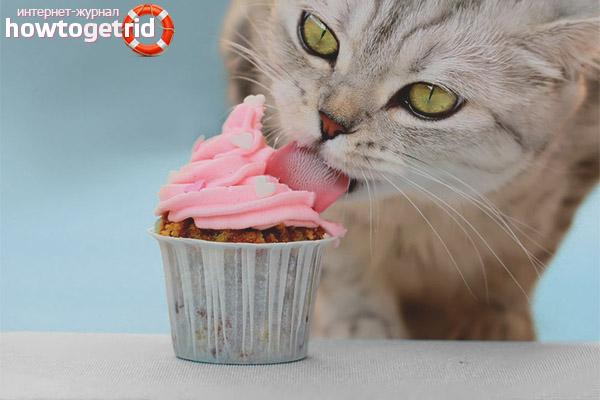
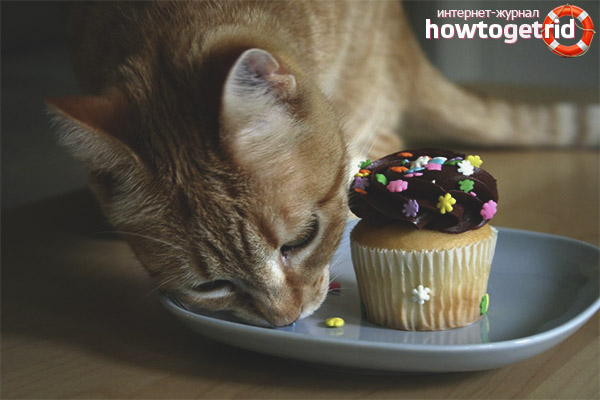
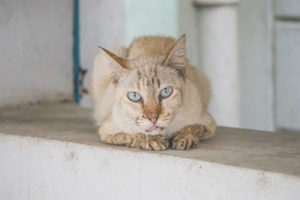
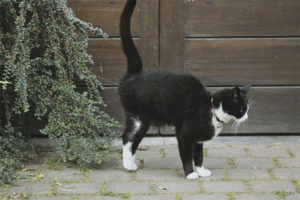
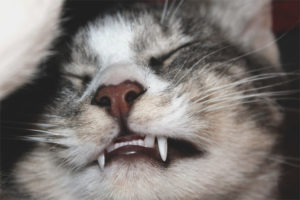
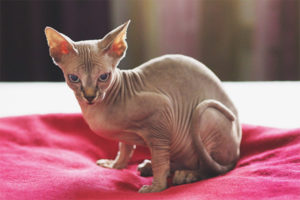
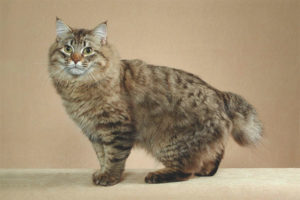
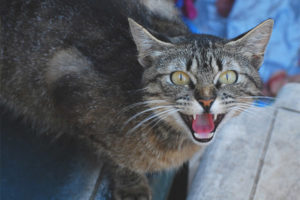
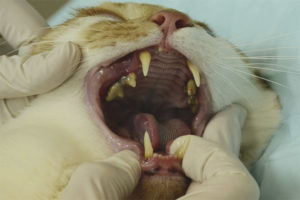
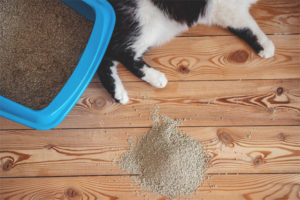
Submit